Leon McClain and Carol Cole
A Day Trip.
Leon McClain was a pleasant looking fellow in his early forties, solidly built, with hair graying at the temples and a habit of cracking his knuckles now and again when he was trying to emphasize a point. He was the manager of the Vacation Motor Inn. Despite Leon’s lofty position as the head honcho in the entire establishment: hotel, bar, and restaurant, lunchtime found Leon cleaning tables, sweeping, or running the register in the diner attached to the lobby of the motel. Lunchtime was the hour when Ken Halberson finally rolled out of bed on that first morning after his secret overnight journey to Nowhere.
Leon showed Ken to his table and handed him a menu.
“We’uh glad to see you hereabouts and wasn’t wantin’ to disturb your sleep after such a long journey. Otherwise, we might’ve sent you breakfast.”
Ken smiled in a friendly way and rubbed his eyes as he sat and pushed into a turquoise-colored booth. “It has been a journey, but I would argue that anyone who arrives in this town has come a long way.”
“That’s true. That is certainly true,” Leon said as he wiped down the table. “But you come a particulah long way and we wasn’t wantin’ to disturb ya.”
“Well, thank you. I’ll just start off with coffee.”
“Coffee. Yes, suh.”
Ken noted Leon’s smooth southern accent, like silk and cream, formal but still truncated here and there and colloquial. He placed Leon from somewhere down in Georgia. Savannah perhaps, like Johnny Mercer or Jim Williams in Midnight in the Garden of Good and Evil.
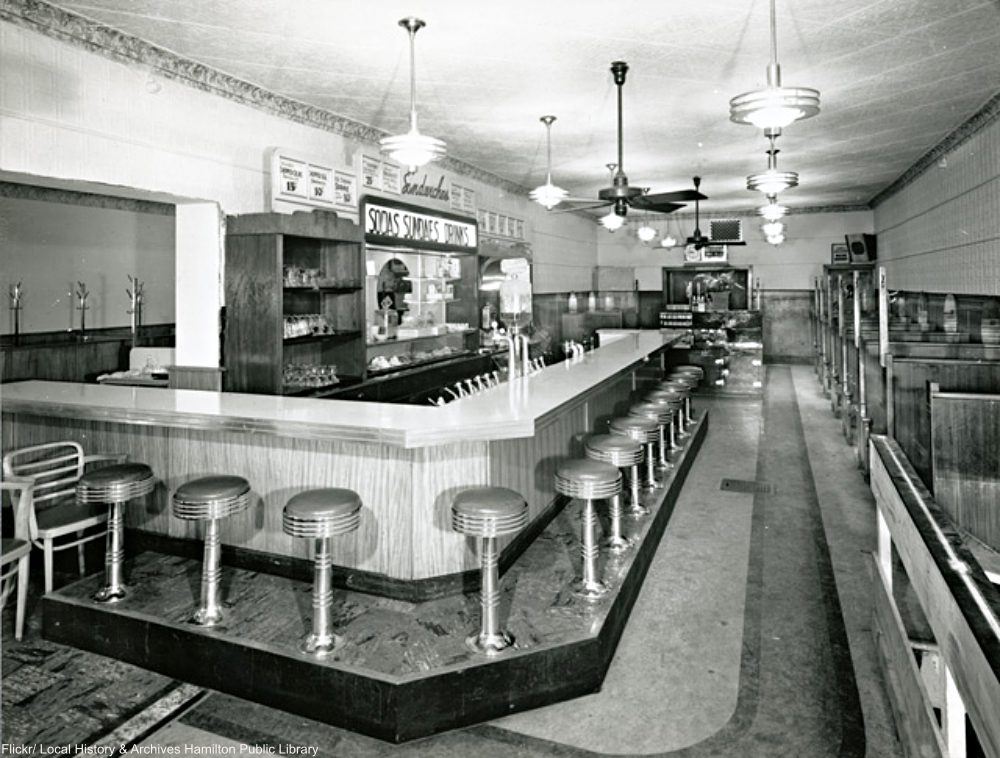
A few minutes later, Leon arrived with a small, stainless pitcher of coffee wrapped in some sort of knitted sweater made for the purpose, along with a smaller stainless cream pitcher, a ceramic tray with sugar cubes and a tiny set of tongs, and a coffee cup capped by a saucer.
McClain placed the coffee service on the table, then ceremoniously removed the saucer and placed it under the cup.
“Yes, suh. Yes, suh,” Leon McClain said and cracked his knuckles. “What can I bring ya for eatin’ purposes?”
“I’ll take an omelet. Bacon, egg, and cheese, chives or greens or whatever you have, and keep the coffee coming if you don’t mind.”
“Yes, suh. Yes, suh,” Leon said again. “And ah do hope we’ll have the pleashuh of a social talk once your appetitenal cravings are propuhly sated. (He was known to make up words when he found that his own concoctions would work better.) “We do try to welcome our guests and introduce them to our (pronounced like owaa) fair town. Now, ah’ll run and put ya orduh in. What should ah call you, fair suh?”
“I’m Ken Halberson. Call me Ken.”
“Oh, that would not do Mr. Halberson. Informality at this juncshuh would certainly not do. But ah’ll run and fetch that omelet for ya.”
Ken poured himself a steaming cup of coffee and smiled as he thought about Leon McClain’s southern manners and how the man knew without asking that Ken had come a long way. Halberson felt like he was an honored guest on another planet. And maybe he was.
***
I’ll forsake writing out Leon McClain’s southern patois. It’s painful to write and to read. From here on in when you read his dialogue, because I’ve told you of it, you’ll hear Foghorn Leghorn or Burl Ives as Big Daddy Pollitt in Cat on a Hot Tin Roof.
While Halberson ate his omelet, Leon McClain sat and introduced Ken broadly to the town and particularly to the Vacation Motor Inn which he operated with his close friend Carol Cole. McClain never said at the time if he was married to Carol Cole, but Halberson suspected as much. Why Carol Cole would have maintained a maiden name was a mystery to Ken Halberson.
“The Motor Inn is our little corner of the universe, the tiny world of Nowhere, and you’ll see it’s plenty of a good life. Over there is the laundromat and back yonder is the bar, eh… cocktail lounge. We call it The Brick House. Cheap drinks there but not watered down and usually fine company. Most folks out to drink and carouse do it downtown where you can walk from place to place, but The Brick House is a fine place to unwind while you’re with us. We aren’t overwhelmed with visitors here, but we’re happy with our business, and our costs are so low that we make out fine. Besides, I make enough from the table at Ben Dobrick’s Thursday night game to cover any shortfalls. I like draw poker but I’m good enough at any of ‘em.”
Out the window in the bright afternoon sunlight, the view could pass for Las Vegas, Nevada another city that sprung from the desert a little less than a decade earlier. Nowhere was a fully realized town with all the traffic and buzz of a real boomtown. The scent on the air in the diner was a harmonious whole, slightly of cigarette smoke and bacon with a hint of maple syrup and coffee. A few shiny automobiles passed by on the highway and palm trees, tall and majestic, flittered in the breeze. The palm trees, Ken reckoned, would have had to have been planted here entirely grown. An urban style decision. He didn’t doubt that such trees could grow at this latitude, but he couldn’t remember palms in the pictures of New Mexico he’d seen in magazines and newspapers. No grass grew between the diner and the highway, but the landscaped parts around the newly blacktopped parking were covered with shiny white stone interplanted with flowering desert plants and cacti. Across the highway was more desert, but Ken could see houses in the distance and more palm trees in the yards and along the roads.
“We’ve been here for four years,” Leon McClain said, “which was when we built the place. We first came to Albuquerque from South Carolina and then over to Alamogordo for the dry air, which helps with my breathing.”
“Ahh, South Carolina,” Ken said. “Makes sense.”
Leon nodded, “Yes, sir.”
“How did you come to be here or to find Nowhere in the first place?” Ken asked.
“Oh, like everyone else. Someone brought us here. We were with new friends and bouncing from party to party one night and at some point, aimless and listless, one of our guides suggested an adventure. We drove through the night and ended up here. We visited for a week, fell in love with the place, and sent a telegram back home to sell everything and send us the proceeds. And after conversing with Mr. Copeland, Carol and I decided that what Nowhere needed was a motor hotel for our transient, traveling public visitors.”
“Mr. Copeland?”
“Oh, Mr. Copeland is one of the first gentlemen we met when we arrived. One of our greatest citizens here in Nowhere. A veritable founding father. So helpful and hospitable to strangers. And how is it you come to visit us, Mr. Halberson?”
“A cabbie named Abe brought me.”
“Sure enough good ol’ Abe Mendoza. He’s a good un.”
“He is.”
There were so many questions, but Ken sat quietly for a few beats, chewing his food and sipping coffee. Then…
“What’s the story of this place?” he asked.
“Of the Vacation Inn? Nowhere? Or what?”
Ken used his fork to indicate around. “Either one. Both.”
“I told you the inspiration of the motor inn. We took all our saved money and what we got from selling all our stuff from our old life. Then Mr. Copeland helped us with a loan from the bank with payments so cheap we couldn’t help but do it. We built the place—there was a lot of construction in Nowhere at the time, so lots of extra workers around—and we’ve loved every minute of running it. Though it do keep us busy.”
“I bet.”
“Mr. Copeland was so helpful. Early on we missed a few payments, and he never said a discouraging word. Never charged us fees. Never pressured us. He said, ‘don’t worry about it. Keep plugging away.’ And we did and now we’re doing fine.
“As for Nowhere the town. It’s just here. Most of them construction workers stayed… just by the by. They never went back to where they came from. Anyway, you’ll hear a dozen stories or more about how the town came to be. Maybe they’re all true, or maybe none of them are. The town, as you can reckon, is young and rife with speculation. The rumor I find most ubiquitous and likely is that it was gold.”
“Gold?”
“Yep. Gold. In this story an old miner name of Lew Bonaventure came here just after the war to look for gold in the basin below those mountains yonder. Word is he found that gold, and a hell of a lot of it. Well… the secret leaked out and people started coming here in droves.”
“Like the 49ers?”
Leon shrugged. “Not really. These weren’t miners coming. Mostly it was regular folk. Maybe people learned the secret lesson that very few of the miners in 1849 got rich. Only a tiny percentage. The people who got rich were the purveyors and the service folk. The middlemen and shop owners and the people selling mining equipment and candles and groceries and burlap and canning jars. Everyone but the miners. By contrast, the people who came here—if you believe this version of the story—were merchants, capitalists, architects, road builders, etc. Well… the kind of people you need to build a town. The more the town grew, the more people were needed to work here and keep growing.”
“What happened to the gold?” Ken said.
“Oh, the rumor is that Lew Bonaventure and a few other miners sent, still send, the gold to town by couriers, or they cart it to Albuquerque through the mountains. Or they fly it out from a private airfield over by Alamogordo to New York or Chicago and the money comes back clean. Who knows? They certainly don’t consult me. But no doubt people believe the gold is there, and that it’s the gold money fueling the banks and the low interest rates and the growth. I believe it.”
“Makes sense.”
“But here’s the deal. There was so much gold (rumor has it) that they had to handle it judiciously. Carefully, you hear? Say you found a mine with all the gold that ever existed in the world. Why, the gold would be worthless!” (He cracked his knuckles here.) “Just too much of it all at once. Price would drop to nothin’. They’d pave the streets with it. That’s what they say heaven is like. So much gold they had to pave the streets with it. So old Lew and his cronies, they drip and drop the gold out piecemeal-like. To make sure the good times and dollars keep rollin’. So’s they don’t saturate the market.”
“Ahh,” Halberson said.
“Truth be told, whatever story you believe, and there are a million of ‘em, if you ask me, this town is here because of the gold. That’s my opinion. Without the gold no one would be here. We wouldn’t, and you wouldn’t either.”
***
I learned that Carol Cole was the brains of the operation, or so Leon said. She managed the cleaning staff, planned parties, and implemented rules to keep the bartenders from giving away too many free drinks. She was a voluptuous woman, curvy, not at all vain or concerned about her looks, but a knockout just the same. All of 5’2” and big red lips, flowing brown hair, and dressed like she was all business. She stopped by the diner while I was talking with Leon, and he recruited her to give me my first driving tour of the town.
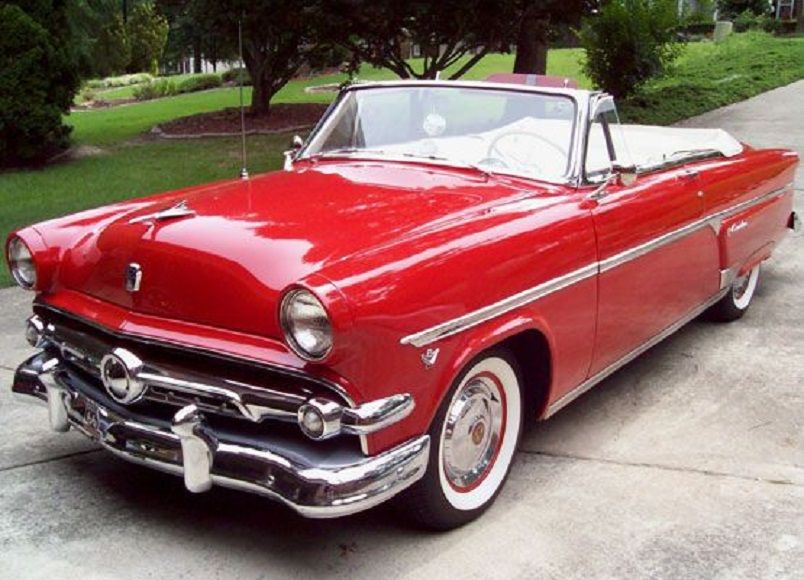
We left the diner in Carol’s red Ford convertible (with the top down) on that beautiful February day and Carol had her hair tied up in a head scarf against the wind and I was happy to be there and not back in Schenectady where it was surely ten degrees and wet to boot.
Nowhere was set out in squares but there were four angled streets all cutting toward the main town square just north of downtown. Other than the angled streets, everything else was on the square, with numbered streets running north/south, and named streets running east/west. The named streets were
clustered in groups, so there were ten streets or so named after nuts (pine, walnut, chestnut, pecan, etc.,) and then there were ten streets named after American presidents (Washington, Jefferson, Adams, and so on.) I think after the Presidents it was American capital cities, then types of cats and dogs. If you were on an angled street, you were heading into or away from the town square and downtown, and the four angled streets were named after their direction: Southwest, Northeast, Southeast, and Northwest.
Carol started us out on Southwest Drive heading in toward downtown. As she drove along, cigarette dangling from her lips, little children would see her coming and run out into the street waving and she would slow and pull shiny dimes out of the car’s ashtray and hand them to the children who would squeal and look at the dimes and shout with joy before running back to their yards.
“Get out of the road you scamps,” she’d yell, cigarette bouncing in her lips.
“They’ll buy ice cream from the truck this afternoon with the money. Don’t worry about it. Their parents don’t mind.”
Occasionally, we passed beautiful parks and public squares that the town’s architects left undeveloped as green areas. Most had a fountain or a gazebo in the center of them, and they were surrounded by houses built in the modern way—all Sinatra and Palm Springs—clean style, low-slung with floor to ceiling windows, brick and stone, exposed beams, and decorative flourishes indicating the rocket age. The colors were Palm Springs or Miami inspired, some were earth tones and white while others were bright turquoise and orange like the Vacation Motor Inn, and there were palm trees, but almost no grass “yards” as we knew them in New York. What wasn’t paved was stone or dirt.
Most of the houses, like most of the cars we saw, were new. All of them were post-war and the majority were only a few years old.
“Our town” (Carole did not have the accent that Leon did,) “is quite modern and clean. Everything you see wasn’t here only six years ago. Nowhere sprung up quite like the grass in spring after a rain with explosive growth in the first few years, but lately the people have decided to rein things in a bit, which is wise.”
“Who decides to rein things in?” I asked.
“Well, the people do, silly,” she laughed. “We don’t have much of a government here, per se. Not what you’re used to. I guess you could say that Mr. Copeland is our de facto Mayor but nothing official and I can’t recall that we’ve ever had any kind of election. We have a Town Square but no County
Courthouse or government buildings. We never saw the need for them. Everyone pretty much wants the same things, and we just talk it over until we come to a consensus.”
She paused and lit another cigarette, offered me one which I accepted.
“Isn’t this weather nice? So cold yesterday, but warm and gorgeous today.”
“The weather is fine,” I said. The weather had changed drastically between Albuquerque and here. Today in Nowhere felt like a spring day or maybe a gorgeous day in early fall.
We turned south on Walnut just before downtown, then Carole did more of a maze pattern from there, pointing out stores, restaurants, and entertainment spots.
“Polly’s is a big gathering mecca for the men who like to sit around and talk. They serve beer and whiskey and sometimes the owner will bring in seafood fresh from the Gulf of Mexico flown in expressly that day for Polly’s guests. It’s not really a restaurant, but they usually have something there for the men to eat.”
I nodded. “Polly’s huh?”
“Short for Polly Wannacracker’s. You know, like a parrot thing? Everyone just calls it Polly’s. It’s mainly men in there and no women except sometimes Clara Davies will go in there just to try to get tongues wagging, but no one pays her no mind. Over there is Bannock’s Five and Dime and Soda Fountain and next to it is Kenton’s Department Store. Bannock’s has great malteds and burgers and Kenton’s has everything you’ll require clothing-wise and for your household needs. If you need a broom or a suit, go to Kenton’s.”
“You should write their ads,” I said.
“Don’t think I don’t,” Carol said without even a sideways glance.
“Ooh,” she said, pointing, “There’s the Dipsy Doodle. Best hamburgers in town if you don’t mind greasy cheese. Which I don’t, you can tell.”
I don’t know why I said it, but Carol’s self-deprecation about her size made me think of it. “Why aren’t you and Leon married, Carol? I don’t see either of you wearing a wedding ring.”
“Married? Me? To Leon McClain?” Carol laughed heartily. “Leon is as homosexual as a three-dollar bill. Or maybe it’s that he’s asexual. Whatever it is when they aren’t interested in the opposite sex. Or any sex for that matter.” She laughed again, not in derision or scorn, but in authentic joviality. “I’ve never seen him give anyone a sideways glance, sexual or otherwise, except in his normal friendly businesslike way. Believe me, if Leon liked women, I’d know it. Been throwin’ myself at him for nine years. Even crept naked into his bed once to try
to motivate things. Not a single thing happened, to my perpetual disappointment and frustration. But Leon and I do love each other, I have no doubt at all about it. I love that man like if I were married to him, I surely do, so don’t expect me to be presenting myself naked in your bed. Unless Leon makes me mad one night and I get drunk, or maybe he finds himself a man. Not you though, sweetie. I know you like ladies. You’ve already looked me up and down a few times, don’t think I didn’t notice, and I thank you for it. It feels good to be appreciated, even if it’s only to be reported on. No sir, I love Leon, and I think he loves me too. In his own, probably homosexual way. And if some other woman comes after Leon, I’ll put her in a hole in the desert.”
“Have you two never talked about it?”
Carol waited a beat before answering. She seemed to be pondering the question, though it was a simple one. Then… “No, we never have. Can’t say I know why we haven’t, but we never have. I know it’s the fifties now and everything is more progressive, but I guess there are some things that just don’t come out in the open.” She looked away and pointed. “Now, over there down the block is the VFW and the Bijou Theatre. And there’s a new drive-in, the Regal, out on Southwest. It’s packed on Friday nights. We don’t get movies until way after they’re released, but there’s always something playing, and they let you sneak booze in if you aren’t too obvious about it. We’ll probably get From Here to Eternity by next Christmas.”
***
We were sitting at the lunch counter at Bannock’s, and I was drinking a Coke with ice while Carol was sipping a chocolate malted through a straw.
“What’s your theory on how the town came to be?”
Carol looked up from her malted and smiled. “Leon been filling you with stories of gold in them hills?”
“He mentioned it.”
“Well, there ain’t no gold. Not as far as I can tell. Everyone believes there is, but I’ve never seen any of it. I think the Ballad of Lew Bonaventure is mostly a myth.”
That kind of shocked me. “So, you don’t think he’s a real person?”
“No, I’m not saying that. He’s probably a real person. I just don’t think he found any gold. You can write me down as an adherent to the conspiracy theory category of Nowhere creation myths. The rumor I subscribe to is that Hoover sent a G-man here after the war. Old man Bonaventure had been prospecting
around and, well, this whole area is littered with secret bases and test sites. You can’t go in any direction and not hit some government facility. So, Hoover sends a G-man to figure out if Bonaventure is a spy and why he’s snoopin’ around these government sites. The G-man, we’ll call him Smith…, well, Smith figures out that Bonaventure is crazy and there ain’t no gold, but Smith likes old Lew and the two become fast friends. But Smith can’t drag out this dream assignment forever. He eventually must tell his people back in Washington why he’s been lazy and lollygagging in New Mexico for a year or so just hanging out in a desert oasis drinking homebrew and white lightning from the still with Lew Bonaventure. Smith makes up the story about the gold to satisfy his spook bosses on two counts: 1. That Lew wasn’t a threat., and 2. That he, Smith, was actually doing his job and not just padding his expense account and sleeping on Bonaventure’s couch. Of course, once word of the gold got to Washington, well, that place leaks like a sieve. I mean, that’s how the Russians got the A-bomb, right. Washington can’t keep a secret. They had a spy right there in Los Alamos stole our biggest secret, so you know the gold story was out in about two point five seconds. But no. Ain’t no gold. Not in my version of the story.”
“The whole thing was a legend?”
“That’s what I believe. Then when the word got out, people came out to see what was happening, fell in love with the place like Smith did, like we did, like everyone does, like you will, and bam… boomtown. Self-fulfilling prophecy All the while, the whole thing is founded on the gold standard. Which is the golden lie. So long as everyone believes the gold is there, everyone’s happy.”
“How did you and Leon get together,” I asked.
“I don’t know if I even recall. We were running in the same circles back in South Carolina. I was there in college and Leon was a graduate assistant, quite a bit older, but he wasn’t assisting in any of my classes. We would meet at parties, and I was instantly in love with Leon McClain and hoping he’d fall for me if I stuck around. I think we fell in love then and we were just always together. Like a hand in a glove, as I said, but nothing was ever physical. Ever. Not even a kiss that wasn’t obviously just friendly. I don’t think I reckoned Leon was gay until sometime later and it wasn’t an epiphany or anything like some bolt from the blue. It just settled on me over time like a foggy day. You don’t usually see the fog rise or flow in like a dam just broke. You just wake up one day and it’s foggy and that’s just the way it is.”
“And you never talked about it? Leon’s homosexuality? It never came up? How is that possible?”
“Damned if I know,” Carol said, then pointed through the glass picture window. “Over there across the street is The Regent Bank. That’s Mr. Copeland’s joint. But anyway, Leon and I just fit together like a hand in a glove, you know, and I guess I never wanted to ruin it.”
“I don’t mean to get too personal, but I have to know. Don’t you ever get…,” I looked around to make sure no one could overhear me, then whispered, “…urges?”
“Oh honey, don’t think I don’t already have you on my list for if I decide to have a moral lapse, because I do, but I don’t want to spoil things for you and Kate. Oh, and you’re gonna need a tuxedo, sweetheart. Get a white one. We can stop by Kenton’s after this and get it ordered. You can put everything on account and I’m sure your paper will want you properly liveried. Tuxedo will make you right edible, Brother Ken. Consumable. You’ll be decked up and fine and everyone in this town with working lady parts will want some of you. Everyone dresses up at Bix’s and no one wears black around here. Only white. It’s too hot in black if you must go outside. You’d stick out like a sore thumb in black. Don’t matter if the tie’s black though.”
“Me and Kate?”
“A small-town woman just has a feel for these things, but let’s not talk about it and jinx it.”
***
Kenton’s Department Store was all glass and exposed beams and marble. Carole and Ken were greeted at the door by a smiling doorman, and he handed them a flyer that announced the coming spring styles and promised “Paris in Nowhere this Spring!” Ken and Carol walked to the elevator where an old elevator operator, possibly in his late seventies or early eighties, asked them which floor they wanted.
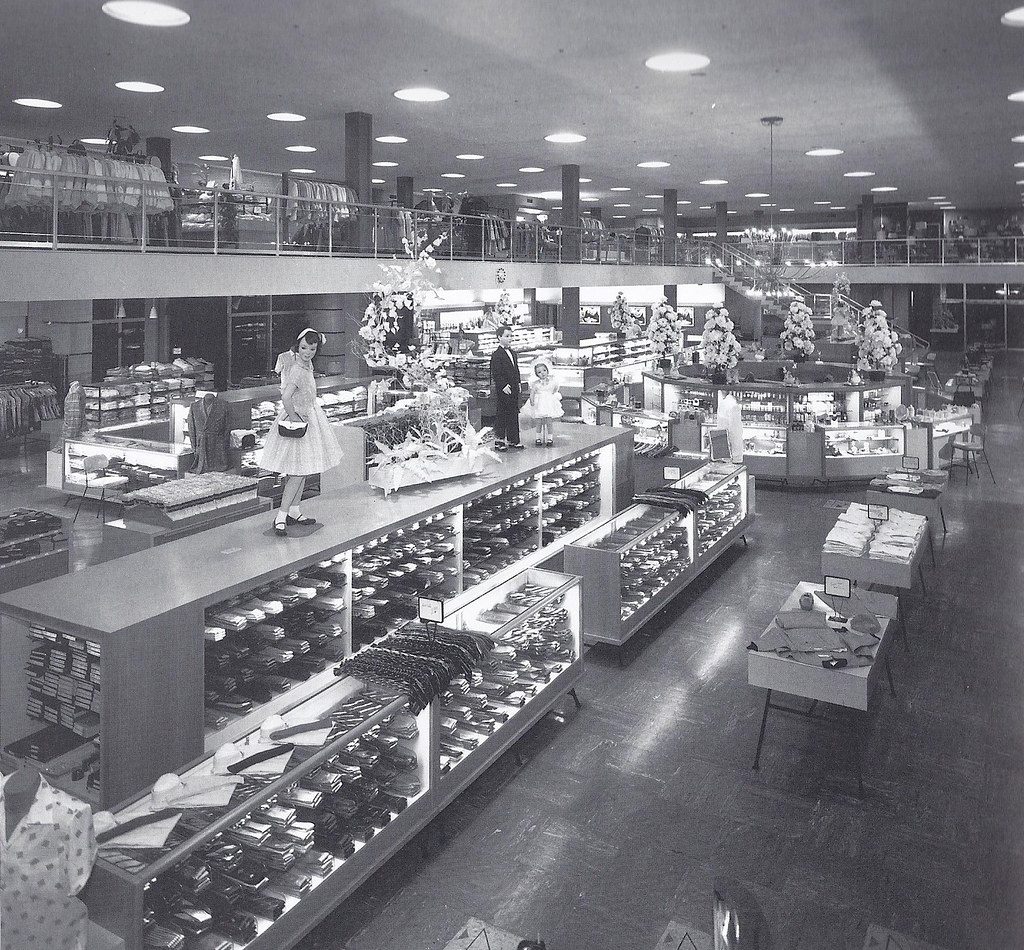
“4th Floor, Men’s,” Carol said as she pressed four fingers into the old man’s back, and then patted him tenderly. “He’s deaf. Stone deaf. He’s Margot Robinson’s father. She works for Copeland at the bank. She brought him here from Allentown last year. He lost his hearing at the Battle of the Bulge. An absolute hero. But he refuses to sit at home in retirement and he doesn’t like the television. She finally got him this job and if you don’t know he’s deaf and you answer his question about “which floor” without knowing that he’s deaf, he just takes you to the 3rd floor – Women’s Dresses. That way he gets it right 95% of the time.”
There was a loud “ping” and the doors slid open revealing the Men’s Department of Kenton’s through a cloud of cigarette smoke. As Carol exited the elevator she reached and squeezed Margot Robinson’s father’s hand. He turned to Ken and said, “I’m deaf!” and Ken nodded.
“Thank you,” Ken mouthed and then smiled.
The old man smiled back, “Protect your gun, young man!”
Ken could tell that the man felt needed, and that said a whole lot. He had no idea what “protect your gun” meant, but he figured the man was old, so who knows.
Carol put her hand on Ken’s shoulder and nodded toward the clothing racks. A few men were shopping among the racks and shelves, but most of the shoppers were women who had purses hanging from the crooks of their arms and took drags on cigarettes while they looked at casual shirts or slacks for their husbands. “I have to go take care of a few things down at the office. Back toward the back is the tuxedos, and they’ll want to measure you and pin you up and it might take a few minutes. If it’s Lucy Kenton, brunette and legs all the way to the ground, beware of her. I mean it. She’s a maneater. She’ll touch your butt a lot. Maybe even your noodle if she really likes you.”
“I like the sound of Lucy,” Ken said.
“Don’t. She’ll chew you up and spit you out in the desert. Her last husband, Old Man Kenton’s son, had to join the Army because he said Korea was safer than staying with Lucy. Her first husband volunteered to trigger the A-bomb. By hand. In person. My friend, he sought annihilation rather than stay with her. She makes crazy people look at her and say, ‘Well now, that bitch is crazy!’ Anyway, when you’re done bein’ sized up and felt up come back down and I’ll meet you in the lobby.”
“Gotcha,” Ken said as Carol slipped back into the elevator. He glanced as the doors began to close and saw the old man pull a flask from his vest and hand it to Carol. The old man saw Ken watching the transaction and he winked.
***
The tux mission was over without too much trouble. “White,” he’d told Lucy, but she just rolled her eyes. “That’s all we sell.” She examined him thoroughly up and down and for a moment, hand on her chin. Ken felt like a steak on a sailor’s plate or a bear’s first meal after a long winter (“Oh! You’ll do. You’ll certainly do.”) After being well measured and having his butt well touched, Ken did the paperwork to open an account to have the bills sent to ol’
Edward Kramer Thompson at LIFE Magazine. Then there were shoes to buy, a bowtie and a belt, pocket squares of assorted colors, and some new undershirts and handkerchiefs. All of these would be sent to the Vacation Motor Inn in the next few days. Ken finally extricated himself from Lucy’s pawing machinations with a lie that he would return someday soon to be more “expertly fitted if you know what I mean,” and in the elevator on the way back to the lobby, the old man handed Ken the flask without a word. Ken took a pull. Whiskey, warm and smooth. He thanked the old man and gave him a thumbs up and made a mental note to buy the old soldier a bottle of whiskey—a token of gratitude from a fellow warrior.
“That Lucy is crazy,” the old man said as the elevator doors slid closed. “She probably grabbed your gun.”
***
Now they were back in the convertible with the wind in their hair.
The town was how Halberson first imagined it, only more so. More idealized than the imagination initially conceives from afar. Clearly the town of Nowhere wasn’t “perfect” in the dictionary sense of being without flaw, but the word can have other meanings. This–what he’d seen thus far—was cinema perfect. Not that level of perfection that makes you not believe what you’re seeing. It wasn’t creepy perfect. Somehow, Halberson just felt comfortable in Nowhere. Like you might say a sweater is perfect because it just feels like home regardless of its condition. Or that feeling you get when the weather is just so, and the colors are bright, and you aren’t suffering from want. The sensation when you have no lack. Trying to describe it to himself he found his vocabulary insufficient.
Maybe it was the day or maybe it was the gorgeous weather, but for a time, as he was riding in the red Ford Crestline convertible (white interior!) with Carol, it seemed that time slowed down. Like in a picture show. And the images Ken saw as they drove and chatted looked like they were produced in a travel agency or maybe were concocted on Madison Avenue.
Then there was the architecture. Not just of the houses and businesses, but of the whole. Taken individually, the houses were unique, but all were alike in that they were constructed in that modern style that was all the rage in the magazines on the newsstands. Built close together, like those Levittown suburb houses in New York and New Jersey, but these were far from the Levittown mass-produced assembly line boxes. Instead of entry level lower middle-class style, these were more modern, spacious, and expensive looking. There was money here, but not audacious money. Here, the middle class thrived.
They passed one of the open public squares and in this one was a baseball diamond with a low backstop and a dozen young boys with baseball hats pulled on sideways or on backwards were playing ball on the sandlot. Meanwhile, Carol was explaining that Nowhere didn’t really want attention, and that people were perfectly happy the way things were, and that Ken should really think about writing a novel about the war or about murder in the movie industry rather than some silly article about Nowhere.
“Stay here and write a book,” she said. “I’m not sure people are going to like some magazine story about their town.”
“I haven’t decided what I’m going to do,” Ken said, “I’m leaving my options open and letting LIFE Magazine foot the bills. Like Agent Smith sleeping on Bonaventure’s couch, I guess.”
“That’s my boy.”
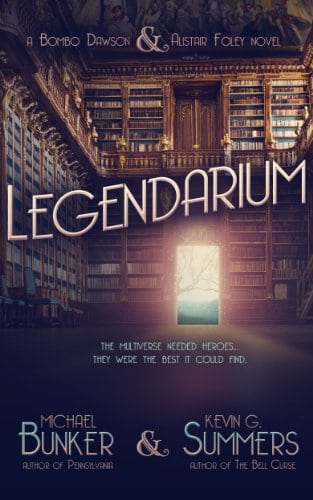
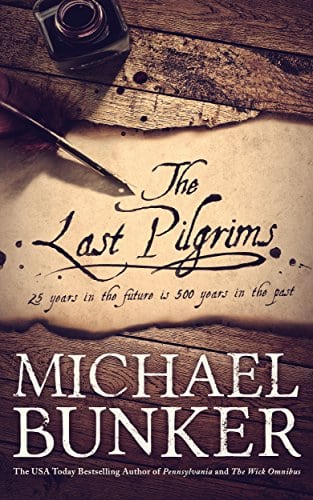
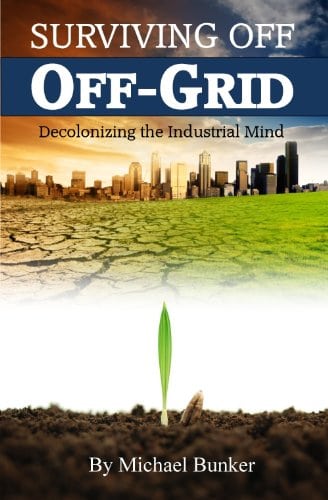
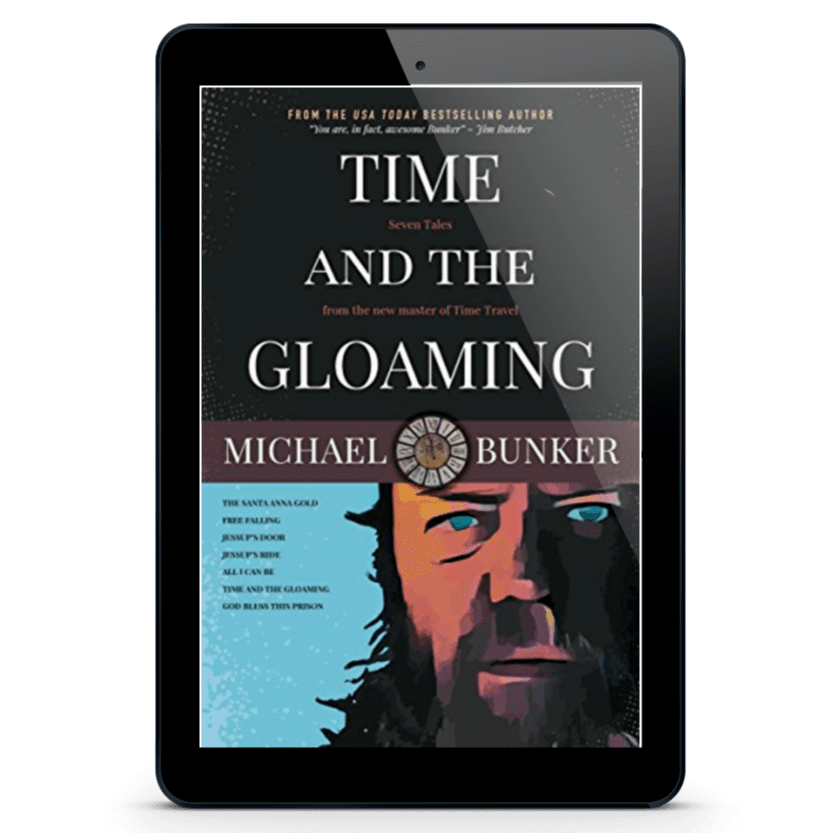
Is this a set up? When it seems too good to be true…
Great Chapter. I like the way you take us on a tour of the town to flesh out the details of the town and some of the characters. A town, that at this point, may seem a little too perfect. Like a Utopia. So far, so good. Thanks.